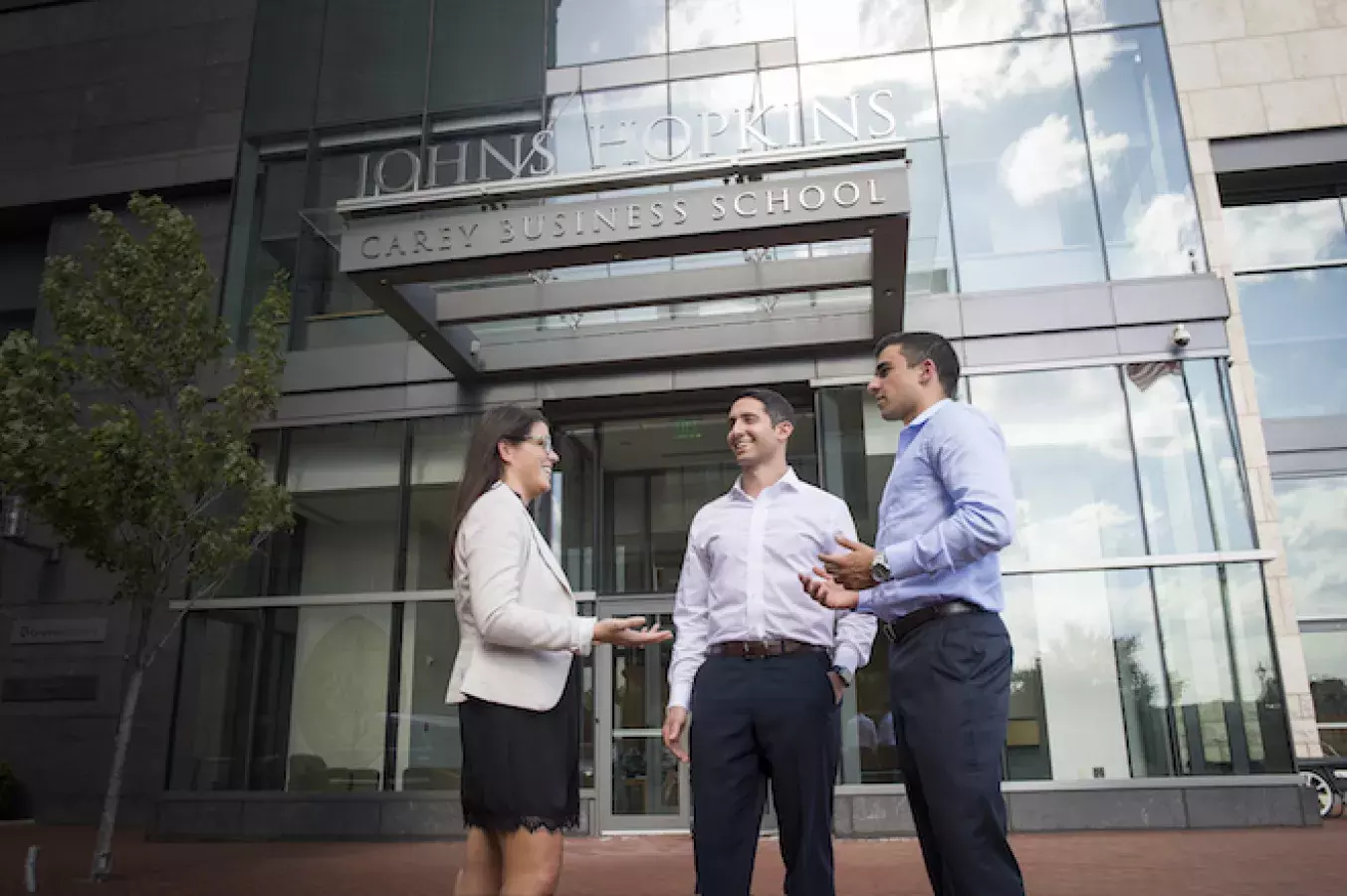The 2nd Health Care Markets Conference
The 2nd Health Care Markets Conference
May 18 -19, 2023
Harbor East, 24th floor

The 2nd Health Care Markets Conference
The health care market landscape in the United States has changed rapidly in the past several years, requiring an integrated perspective to understand the complex interaction between choices at the micro level and the shifting regulatory and institutional landscape at the macro level. This two-day conference provides a forum for industry leaders, policy analysts, and academic experts to examine how consumer and firm choices, as well as government regulation and policy, shape and transform health care markets.

Program Co-Chairs: Yaa Akosa Antwi, Andrew Ching, and Jian Ni, and of the Johns Hopkins Carey Business School
Co-Sponsors: Digital Business Development Initiative (DBDI) and Hopkins Business of Health Initiative (HBHI)

Register Now for The 2nd Health Care Markets Conference
Program
Thursday, May 18
8 – 8:45 a.m. Breakfast
8:45 – 9 a.m. Opening Remarks:
Goker Aydin, Vice-Dean, Johns Hopkins Carey Business School
9 – 10 a.m.
Health Shocks, Health Insurance, and the Dynamics of Earnings and Health
Presenter: Michael Keane (Johns Hopkins Carey Business School)
Co-author: Elena Capatina (Australian National University)
10 – 11 a.m.
Can Competitive Bidding Work in Health Care? Evidence from Medicare Durable Medical Equipment
Presenter: Yunan Ji (Georgetown University)
11 – 11:20 a.m. Break
11:20 a.m. – 12:20 p.m.
You’d be Hard to Replace: Provider Competition in Narrow Network Insurance Markets
Presenter: Samuel Kleiner (Federal Trade Commission)
Co-authors: Thomas G. Koch (Federal Trade Commission) and Christopher V. Lau (Federal Trade Commission)
12:20 – 1:30 p.m. Lunch
1:30 – 2:30 p.m.
Does Advertising Matter to Emergency Department Patients? The Effect of Advertising on Hospital Choice, Travel Distances, and Mortality Rates
Presenter: TI Kim (University of Texas at Dallas)
Co-authors: Simon Seung Mok Kim (University of Texas at Dallas) and Tae Jung (TJ) Yoon (Korean Advanced Institute of Science and Technology)
2:30 – 3:30 p.m.
Endogenous Information and Simplifying Insurance Choice
Presenter: Jihye Jeon (Boston University)
Co-author: Zach Y. Brown (University of Michigan)
3:30 – 3:50 p.m. Break
3:50 – 4:50 p.m.
Procurement in Welfare Programs: Evidence and Implications from WIC Infant Formula Contracts
Presenter: Yonghong An (Texas A&M University)
Co-authors: David Davis (South Dakota State University), Rui Huang (Amazon), Yizao Liu (Pennsylvania State University) and Ruli Xiao (Indiana University)
5:30pm – 6:30 p.m. Reception
Friday, May 19
8 – 9 a.m. Breakfast
9 – 10 a.m.
Funding of Clinical Trials and Reported Drug Efficacy
Presenter: Tamar Oostrom (Ohio State University)
10 – 11 a.m.
The Power of Exclusion: Pharmacy Networks and Bargaining in Medicare Part D
Presenter: Gautam Gowrisankaran (Columbia University)
Co-authors: Sebastian Fleitas (University of Leuven), Amanda Starc (Northwestern University), Ashley Swanson (University of Wisconsin-Madison) and Robert Town (University of Texas at Austin)
11 – 11:15 a.m. Break
11:15 a.m. – 12:15 p.m.
Does Social Media Dominate Government Report Cards in Influencing Nursing Home Demand?
Presenter: Susan Feng Lu (Purdue University)
Co-authors: Yuanchen Li (Tongji University), Lauren Lu (Dartmouth College)
12:15 p.m. Concluding Remarks and Lunch



